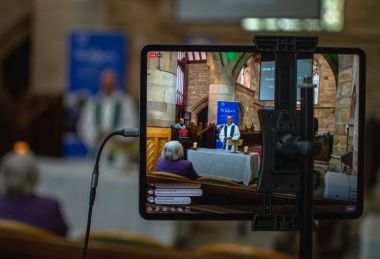A new way to racial justice

The Archbishop of Canterbury's Racial Justice Commission, headed by Lord Paul Boateng, released its first report last month. Reading through it, what immediately stands out is the task they have set themselves in seeking to drive 'significant racial, cultural and structural changes within the Church of England.'
The whole report builds on the forty-seven recommendations of the Anti-Racism Taskforce's earlier report, 'From Lament to Action', by pursuing changes that 'capture the aspirations of the 47 recommendations set out in that report.'
In the foreword of the report, Lord Boateng explains that the Commission's work in the area of restorative justice, which underpins the work, has been a 'painful process.'
He says that the Commission has met with 'denial and defensiveness or obscuration and delay' in examining and shedding light on racism within the Church of England's structure, and practices.
Despite this, he highlights several areas where its work and recommendations can make a difference, help to right past wrongs, and set out a new path where diversity is enshrined in the culture and structure of the Church, and where each member is welcomed and valued.
Many of the Commission's recommendations are practical, measurable, and obtainable. They should have been in place long ago, while others are structural and systemic, with racism at the heart of the problem. The report doesn't shy away from this or from other contentious issues and willingly challenges inertia, denial, and painful inaction on the question of slavery and the Church of England's role in it. Still, we will need to wait until it has conducted a more detailed analysis before it suggests a way forward.
Similarly, with reparations, which is rapidly gaining attraction in the Caribbean and elsewhere, Lord Boateng says the Commission is looking to 'get a clearer understanding in monetary terms the sums...by which the Church of England benefited from the slave trade' and will have more to say on this in subsequent reports.
Another contentious issue the Commission had something to say about is what to do with monuments of people within the Church and in places of worship who have knowingly been complicit in the enslavement and death of millions of Black people. Why removing them should be a problem in this age of racial awareness and enlightenment is beyond me. Even the Archbishop of Canterbury, Justin Welby, laments this when he says, "Why is it so much agony to remove a memorial to slavery....?"
TheCommission picks up on this and highlights the controversy surrounding the removal of the monument to Tobias Rustat in Jesus College Chapel Cambridge. As an observer, the Commission looked closely at the unsuccessful process. It concluded that the Consistory Court that made the ruling needs reforming, its processes need simplifying, and calls for greater diversity in the panel of judges and practitioners that makes up the court.
How the Church of England handles situations when people experience racism and make a formal complaint is another concern for the Commission. It concluded that the existing process often 'leaves little room for reconciliation or restitution' and that current disciplinary codes, charters, policies, or procedures 'are inadequate and do not inspire confidence.'
Dispensing patronage in the Church is another area the Commission takes head-on. Patronage, it says, 'is often understood as guardian of the breadth of belief and practice within the Church', which helps safeguard its Anglican identity. The chief impact is through its appointment system and 'endowments.'
While the Commission concedes that this process has become more transparent and open in recent years, it questions its exercise regarding ethnic diversity. Here the Commission says, a lack of this diversity is 'intimately bound up in the culture, laws and practices that govern the Church of England. Much of this is protected by statutes and government regulations, and in the Commission's view, it may need new laws to change them.'
In proposing many of the changes in the report, Lord Boateng set them out within a theological context. He cites John 13:34-35, in which Jesus gives his disciples a new commandment: "Love one another as I have loved you."
Here Lord Boateng rightly emphasises love, whereas I believe the idea of a new way - which implies there was an old one - would equally be compelling and should be given equal treatment, as it's a new commandment and a new way of doing things.
As a new way, it does not need to rely on love in its highest form, which is only found in Christ Jesus, but it can help build consensus around new ways of doing things, rather than depending on emotional responses from failed human beings.
In other words, I'm not asking you to love me, which might be difficult for a host of reasons, but if for no other reason than that the Church of England in terms of its membership is dying on its feet, it therefore needs new ways of doing things, new ways of attracting members, especially those who are already partly committed. Perhaps this is a good area to build consensus around.
'New Labour' can teach us a thing or two about a New Way, for rather than seeking an emotional response from the electorate in the 1997 election, it proposed 'New Labour' and a new way of doing things. Also, like Labour, if the Church of England is not to become a dinosaur in this rampant age of secularism, it will need to ditch some sacred cows as well!
Commenting on this, the first report, the Archbishop of Canterbury said: "This Report identifies the difficult and long path to eradicating the pain and injustice felt by so many, but provides us with hope that through the Commission's work, these issues will be addressed."
Amen to that!
Roy Francis is an award-winning former BBC 'Songs of Praise' producer and the author of 'Windrush and the Black Pentecostal Church in Britain'.











